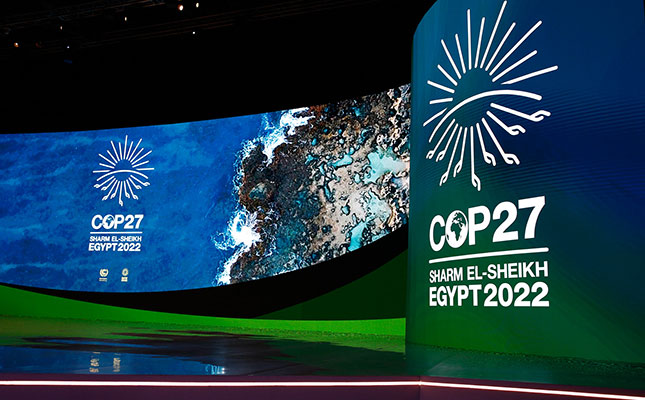
And, as always, the world’s leaders delivered very little in terms of decisive climate-change mitigation strategies. The event held an important lesson in irony for all of us, as the conference was dominated by talk of climate change and the need to act fast on the growing problem, while being supported by massive corporations and polluters.
READ COP27: Climate-proofing agriculture to enhance food security
For starters, and perhaps not all that surprisingly, the world’s leaders arrived at the conference on private jets, which emit 4,5 to 14 times more carbon dioxide than a flight by a commercial airliner, depending on the distance of the flight, according to the European Federation for Transport and the Environment.
Coca-Cola was also one of the main sponsors of the event. The company was recently named by Break Free From Plastic’s latest global brand audit report ‘The 2022 Brand Audit’ as the biggest plastic polluter in the world for the fifth consecutive year.
According to the UN’s own organisation, the Environment Programme, “plastic pollution alters habitats and natural processes, reducing an ecosystem’s ability to adapt to climate change, and directly affecting millions of people’s livelihoods, food production capabilities and social well-being”.
France and Spain also pledged to stop the sale of fuel-driven vehicles by 2035, replacing these instead with the sale of electric vehicles, which require electricity, largely generated by coal-powered power stations.
There was also a push for the ban on fertilisers and chemicals in the production of crops. This is particularly ironic, as more and more governments move towards banning genetically modified crops, which is probably the only means we could ever move closer to a production system in which little or no fertilisers and chemicals are needed.
As Theo de Jager, president of the World Farmers’ Organisation, who attended the COP27 said via a Twitter post: the world’s leaders want billions of people to change their diets to only eat plants, which need to be produced without any fertilisers or chemicals.
It seems like most advocates of a “transformation of food systems” here at #COP27 want to move 8 billion people to a plant based diet produced with no fertilisers or chemical crop protection on less land by 2030 pic.twitter.com/M5IRenr6N7
— Theo de Jager (@TheoDJager) November 7, 2022
The COP27, like its predecessors, seems to exist as an excuse for the world’s leaders to gather, at the taxpayers’ expense, and to pontificate about climate change and mitigation strategies.
However, for all their pomp, responsibility for climate change mitigation is being pushed onto farmers and consumers, while big polluters and organisations are welcomed, as long as they can offer enough money.
This is bad news for everyone, as climate change will remain a looming threat. As a consumer, you can reduce your use of plastic items, you can recycle and you can buy food that is allegedly sustainably farmed; as a farmer, you can adopt regenerative and conservation agricultural practices, reducing the need for fertilisers, herbicides and pesticides.
But, even if every single one of us made these changes, it would still have little effect on climate change and global warming, as the world’s biggest emitting industries are not pressured to change their practices. Climate-change mitigation needs the real buy-in from the world’s leaders; lip service does nothing to address the actual problems facing the world.
Janine Ryan, Editor











